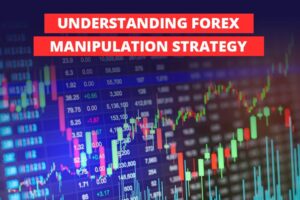Trading Economics Inflation
Expansion is a basic financial marker that mirrors the rate at which the general degree of costs for labor and products is rising, and consequently, disintegrating buying power. Understanding expansion is fundamental for market analysts, policymakers, organizations, and financial backers, as it influences choices on loan costs, wages, and speculations. This article will investigate the idea of expansion, its causes, influences on the economy, and the job of exchanging financial aspects dissecting expansion patterns. The stock market or any business information will be available on correction territory.
What is inflation?
Inflation is the rate of increase in prices over a given period. We describe in an example. For example, if you have to buy a biscuit for Rs. 5 but after one year the price of biscuit becomes 10 Rs. then inflation happens. Inflation is a common denominator that is measured by the common commodities and items of the whole country.
Rate of inflation:
If you like to trade economic news events you will know that central banks and analysts pay serious attention to an economy’s rate of inflation. This rate of inflation can be an important guide to a central bank when it needs to consider raising or lowering its economy’s interest rate. Typically, central banks have a target of two percent per year.
There are three basic types of inflation and each has a different effect on a central bank’s reaction to demand poll inflation where for example;
- Demand-Pull inflation:
If demand for a product or service increases beyond the current supply prices will increase.
- Cost-push inflation:
Rather, demand falls the opposite will occur cost push inflation where if the cost of production of a product increases the cost to the retail consumer will increase. This change in production cost can be affected by the supply of raw materials currency inflations in the case of imported materials and the cost of labor to produce the product.
- Built-in inflation:
The built-in inflation or wage inflation where wages and prices increase simultaneously to maintain a consistent ratio of income versus cost of living. Each economy uses different indices and reports to calculate its rate of inflation.
Stagflation:
- Persistence rise in price
- Unemployment
- No consumer
Cause of inflation:
- Factors causing increase in Demand
- Increase in public Expenditure
- Increase in private expenditure
- Increases in Exports
- Reduction in Taxation
- Repayment of Public Debt
- Rapid growth of population
- Factors Causing Decrease in Supply
- Shortage of Supply of factors
- Hoarding by traders
- Hoarding by consumers
Uses of indices:
The U.S. Federal Reserve uses its personal consumption expenditures PCE and its consumer price index CPI and these are published every month. However, investors watch carefully the FOMC statements and speeches by the chair of the U.S. Federal Reserve to determine how they might react to the current rate of inflation. The banks of Canada and England use monthly CPI data. The reserve banks of Australia and New Zealand use CPI but only a quarterly basis.
Effects of inflation>
There will be positive or negative.
Positive effects
- Increase in production
- Increase in employment
- Increase in research
Negative effects
- Increase cost of living
- Income inequality rise
- Saving drop
- Less export more import

Prologue to Expansion
Meaning of Expansion: Expansion is the supported expansion in the general value level of labor and products in an economy throughout some undefined time frame. It is normally estimated by the Buyer Value File (CPI) or the Maker Value List (PPI).
Significance of Expansion Estimation: The following expansion is vital because it influences the typical cost for most everyday items, the buying influence of cash, and generally speaking monetary strength. National banks, like the Central Bank or the European National Bank, intently screen expansion to set financial strategy.
The motivation behind the Article: This article plans to give an exhaustive comprehension of expansion, including its causes, impacts, and how exchanging financial matters assumes a part in dissecting expansion information for better direction.
Reasons for Expansion
Request Pull Expansion: This happens when the interest for labor and products surpasses their stockpile. Factors, for example, expanded purchaser spending, government consumption, or speculation can drive request pull expansion. For instance, during monetary extension, when business is high and wages rise, shoppers have more cash to spend, driving up costs.
Cost-Push Expansion: This kind of expansion is driven by inflated expenses of creation, like higher wages, natural substance costs, or energy costs. At the point when organizations face higher creation costs, they frequently pass these expenses onto buyers as more exorbitant costs.
Underlying Expansion: This is connected to the assumptions for future expansion. In case workers guess that expenses ought to rise, they demand higher wages, which drives associations to construct expenses to deal with the cost of higher wages, making a compensation cost curve.
Monetary Development: This happens when there is a pointless reserve of money in the economy. Right when public banks print more money or lower supporting expenses, it can provoke a development in real money supply, causing extension as more money seeks after comparative proportions of work and items.
Impacts of Expansion on the Economy
Buying Influence: Expansion disintegrates the buying influence of cash, meaning customers can purchase less with a similar measure of cash. This is especially trying for individuals on fixed wages, as their pay doesn’t increment with expansion, prompting a reduction in their way of life.
Loan fees: National banks frequently raise financing costs to battle high expansion. Higher loan fees make acquiring more costly, which can dial back financial development by diminishing shopper spending and business speculation.
Wages and Business: While moderate expansion can prompt higher wages as organizations go after specialists, high expansion can make the contrary difference. On the off chance that organizations face greater expenses, they might eliminate positions to keep up with productivity, prompting higher joblessness.
Venture: Expansion influences financial backers as it dissolves the genuine worth of profits. For instance, on the off chance that the expansion rate is higher than the profit from a security or investment account, the financial backer loses buying power. This can lead financial backers to look for resources that generally perform well during expansion, like land or products.
Financial Vulnerability: High and unpredictable expansion creates vulnerability in the economy, making it hard for organizations to anticipate what’s to come. This can diminish speculation and monetary development, prompting a possible downturn.

Exchanging Financial Matters and Expansion Examination
Job of Exchanging Financial Matters: Exchanging Financial matters is a stage that gives extensive information on monetary markers, including expansion rates across the globe. It offers continuous information, figures, verifiable outlines, and news on expansion, helping organizations, financial backers, and policymakers make informed choices.
Information Examination and Determining: Exchanging Financial matters utilizes various models and calculations to dissect expansion patterns and estimate future expansion rates. These conjectures depend on variables, for example, current expansion rates, national bank arrangements, item costs, and financial development.
Worldwide Correlation: One of the qualities of Exchanging Financial matters is its capacity to give a worldwide point of view on expansion. Clients can analyze expansion rates between various nations, assisting organizations and financial backers with understanding how expansion patterns in a single locale could influence another. For instance, rising expansion in the US could prompt higher financing costs, influencing worldwide capital streams and trade rates.
Influence on Monetary Business Sectors: Exchanging Financial aspects additionally gives bits of knowledge into what expansion means for monetary business sectors. Expansion information can impact stock costs, security yields, and cash values. By examining this information, financial backers can settle on better-informed conclusions about where to designate their resources.
Contextual investigation: Incorporate an illustration of how Exchanging Financial matters’ information on expansion was utilized by a business or financial backer to settle on a basic choice. For example, a global partnership could utilize expansion figures to support against money risk in nations with high expansion.
Government and National Bank Reactions to Expansion
Financial Arrangement: National banks, similar to the Central bank, utilize money-related strategy devices to control expansion. The most well-known instrument is changing loan costs. By raising financing costs, national banks can lessen spending and getting, dialing back expansion. Then again, bringing down loan costs can invigorate spending and venture, possibly expanding expansion.
Financial Arrangement: States can likewise impact expansion through monetary strategy, for example, changing expense rates and government spending. For example, lessening assessments can increment extra cash, prompting higher buyer spending and possibly higher expansion.
Expansion Focusing Numerous national banks use expansion focusing as a strategy structure, setting a particular expansion rate (typically around 2%) as their objective. By conveying this objective, national banks plan to secure expansion assumptions, making it simpler to oversee genuine expansion.

Challenges in Overseeing Expansion
Adjusting Development and Expansion: One of the fundamental difficulties is adjusting the requirement for monetary development with the need to control expansion. A lot of spotlights on development can prompt out-of-control expansion, while a lot of spotlights on controlling expansion can smother development and lead to joblessness.
Worldwide Impacts: Expansion isn’t just affected by homegrown factors yet in addition by worldwide patterns, for example, oil costs, store network disturbances, and cash vacillations. Overseeing expansion in an interconnected worldwide economy is mind-boggling and requires coordination between various nations and establishments.
Expansion Assumptions: It is essential however testing to Oversee expansion assumptions. Assuming that individuals accept expansion will rise, they might act in manners that make it rise, like requesting higher wages or expanding costs.
Rundown of Central issues: Sum up the primary concerns examined in the article, accentuating the significance of grasping expansion, its causes, and its effects on the economy.
Suggestions for Organizations and Financial Backers: Feature how organizations and financial backers can utilize devices like Exchanging Financial Matters to screen expansion patterns and pursue informed choices.
Future Standpoint: Momentarily talk about the possible future patterns in expansion, taking into account factors like mechanical headways, worldwide monetary circumstances, and national bank arrangements.


